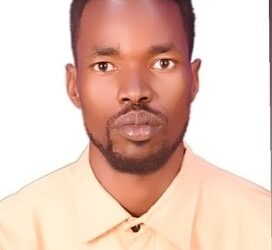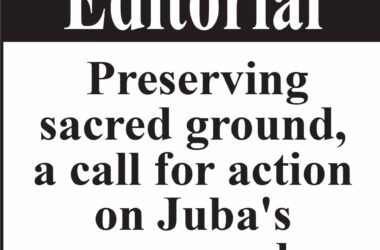By Agar Mayor Gai-Makoon
Youth are the brokers of change in power dynamics. Youth determine the course of politics for any society. They are creative, energetic, collaborative and adaptive. These qualities identify them as the powerful echelon for a peaceful, progressive and productive politics. Our history is full of successes initiated and effected by youth.
In 1983, the people who opposed Nimeiri’s dictatorial policies meant to silence and extort resources from the Southern region were the youth. They staged the war for twenty-one years. And it not only became a success to the people of South Sudan, but also the movement forged sense of unity and peaceful co-existence among the different tribes of the new country. It is thus important that the youth can as well be pivotal in the maintenance of this unity and coexistence.
Youth are susceptible to influence and coercion by the rich and powerful. And given that, they can also be agents of disorder and politics of division in the society. This is, and will continue to dominate politics in this country if miracles do not happen.
The politics of division on the basis of tribes or clans is not healthy. It is unproductive, weak and a game that benefits smaller portion of the society. This is not what a state means—domination by the few rich and powerful.
Instead, the state is a living body according to Plato. All its features are important and equally contribute to its progress and productivity. It is therefore, not right that youth power is stifled and buried yet it should play central role in the politics of our country.
These days, it is difficult to find a youth who lacks a political lobby’s camp. These camps are for rich politicians who use their money to influence youth and media so that the appointing authority hears and employs them.
This is not a proper way of getting government positions. It leaves the young people divided and powerless, and perhaps, the ideal youth role of unity, progress and productivity becomes diverted and lost. We are in this situation where the young people because of their condition—being poor and mostly uneducated are subject to bribery and blackmail by the rich politicians whose aim might not be to the benefits of the state.
Government positions are not got through lobbies and sole appointments from one individual. It is a sole responsibility of the ministries of labour and public service. It is true, a party or president can nominate a person of his choice but due processes through the public service and parliament are always required.
So, in a full-blown system where each institution functions accordingly, it is folly to pin towards convincing the president for appointment. Instead, one has to always work to possess the required skills for the job. And this is the trick that derives productivity and economic development for a country. In fact, it also puts to stop the politics of blackmail and division. And in order for our country to progress, develop and be peaceful, the youth should be empowered, and allowed to take their role in the power dynamics of our country. They should be well educated about their power, even to destroy the country just like it has already happened. And by so doing, they will always be able to do right, and denounce that which is destructive for instance, armed conflict.
The government should prioritize positive youth involvement in the making of decisions that will shape the nation in a way that we want.
The youth bill—that seeks to solve and direct youth to always be creative, productive and economically empowered should be tabled and discussed by our legislative assembly. So that youth activities are legally provided for in our constitution and doing so will require a government funding.
Our development partners will also be assured and encouraged to support the activities of youth if there is a legal ground for the growth of youth.
Enough destruction by and for the youth has happened, and it is time we revise and redirect the actions of youth towards a progressive state. The role of youth is not to destroy, but to always build from what is available.
The writer is former contributor to Juba Monitor




